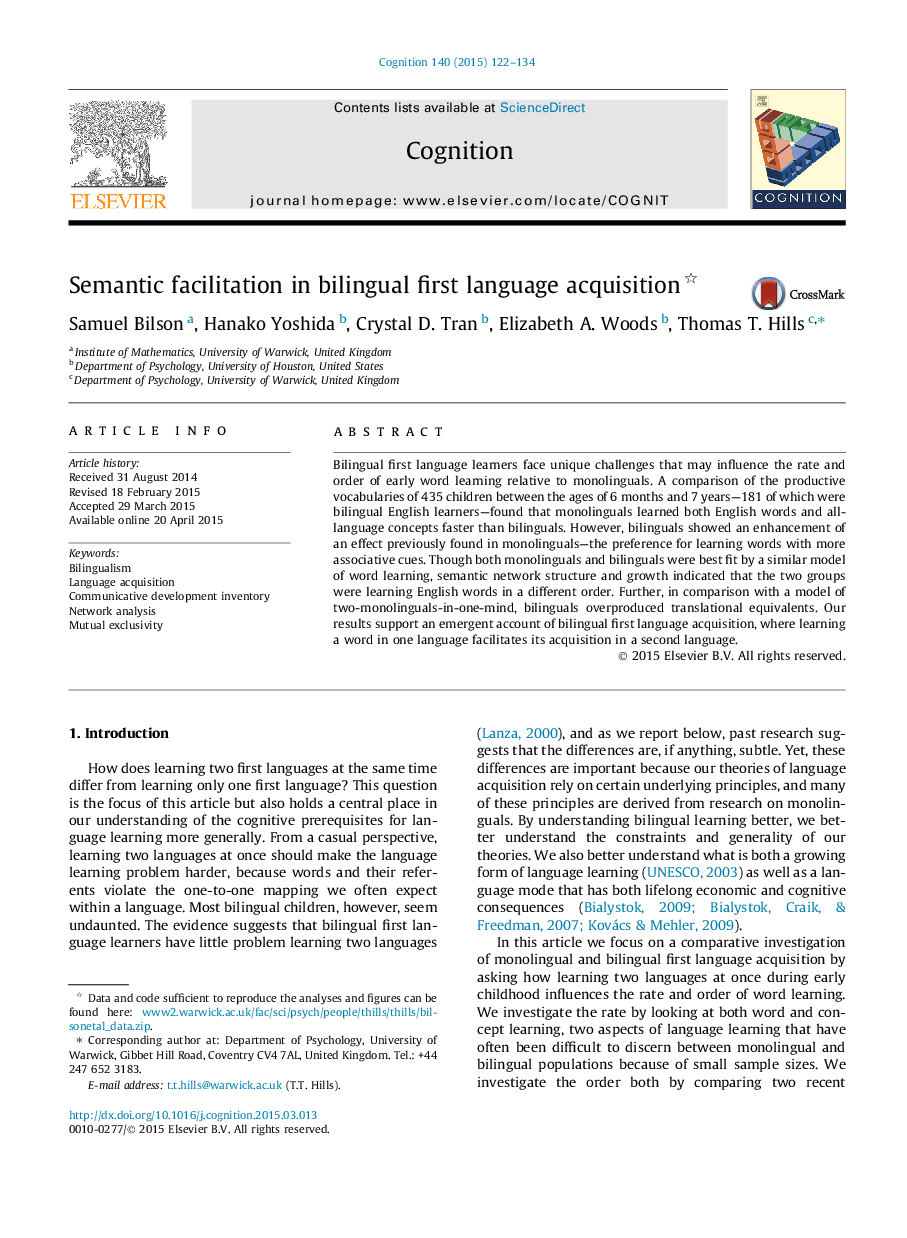| Article ID | Journal | Published Year | Pages | File Type |
|---|---|---|---|---|
| 7287069 | Cognition | 2015 | 13 Pages |
Abstract
Bilingual first language learners face unique challenges that may influence the rate and order of early word learning relative to monolinguals. A comparison of the productive vocabularies of 435 children between the ages of 6Â months and 7Â years-181 of which were bilingual English learners-found that monolinguals learned both English words and all-language concepts faster than bilinguals. However, bilinguals showed an enhancement of an effect previously found in monolinguals-the preference for learning words with more associative cues. Though both monolinguals and bilinguals were best fit by a similar model of word learning, semantic network structure and growth indicated that the two groups were learning English words in a different order. Further, in comparison with a model of two-monolinguals-in-one-mind, bilinguals overproduced translational equivalents. Our results support an emergent account of bilingual first language acquisition, where learning a word in one language facilitates its acquisition in a second language.
Related Topics
Life Sciences
Neuroscience
Cognitive Neuroscience
Authors
Samuel Bilson, Hanako Yoshida, Crystal D. Tran, Elizabeth A. Woods, Thomas T. Hills,
